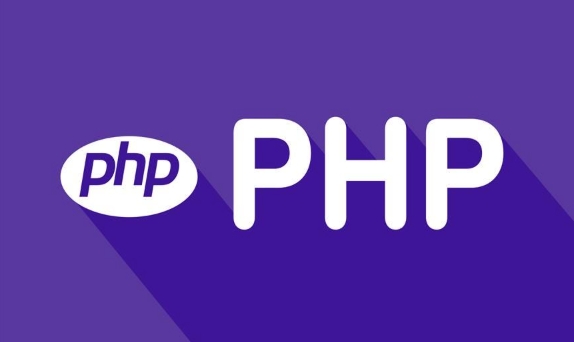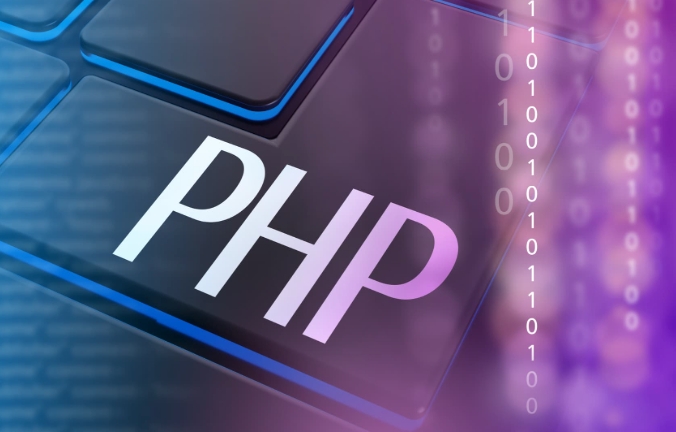 Backend Development
Backend Development
 PHP Tutorial
PHP Tutorial
 PHP development environment configuration: Tips to avoid common mistakes
PHP development environment configuration: Tips to avoid common mistakes
PHP development environment configuration: Tips to avoid common mistakes
Jun 26, 2025 am 12:50 AMThe key to configuring a PHP development environment is to select the right tool, pay attention to the matching of versions and extensions, and set up the virtual host correctly. Newbie recommends using XAMPP or Laragon one-click installation; experienced people can choose Docker or Vagrant; manual compilation is not recommended. Different projects need to pay attention to the differences in PHP versions, view the version and extensions through php -v and php -m, modify php.ini to enable modules, and confirm whether the configuration file path is loaded correctly. When configuring a virtual host, you must ensure that Apache's DocumentRoot points to the project directory correctly, check the ServerName and directory configuration in httpd-vhosts.conf, and pay attention to the system permission settings and whether the virtual host module is enabled for the main configuration file.

It is actually not too difficult to configure a PHP development environment, but it is easy for novices to get into pitfalls during the construction process. The most common problems include missing extensions, wrong path configuration, incompatible versions, etc. Just pay attention to a few key points to avoid most of the trouble.

Choose the right development tool combination
Many people are struggling to use XAMPP, WAMP or manually use Apache PHP MySQL at the beginning. In fact, for novices, XAMPP is the most convenient choice, with one-click installation and basic functions. If you already have experience and want to be more flexible in control, you can consider Docker or Vagrant to manage the environment.

- If it is only local development, it is recommended to use XAMPP or Laragon
- Docker is a good choice to simulate production environments
- It is not recommended to compile and install manually at the beginning, as it is prone to errors and wastes time
Pay attention to the matching issues between PHP version and extension
Different projects may have different PHP version requirements. For example, some old projects can only run in PHP 7.4, while new projects may already use PHP 8.2. If you only install one version at this time, compatibility issues are likely to occur. Moreover, many extensions (such as gd, opcache, exif) are not enabled by default, and you need to manually enable them in php.ini.
Common practices are:

- Use
php -vto view the current version - Use
php -mto view loaded extensions - Remember to remove the semicolon when modifying the php.ini file
;enable the module - Multi-version switching can be supported by PHPBrew or Laragon
Sometimes you have installed an extension but cannot find it on the command line or web page. The probability is that you have corrected the location of the php.ini file. Remember to confirm which configuration file is loading, and you can view it through phpinfo() output.
Don't ignore permissions and path settings when configuring virtual hosts
When developing multiple projects locally, configuring virtual hosts (Virtual Host) is very convenient. However, novices often encounter problems such as accessing 403, page cannot be opened, and prompting insufficient permissions. This is usually because the directory permissions are not matched or Apache does not point to your project path correctly.
Solution:
- Make sure Apache's DocumentRoot points to the correct directory
- Configure ServerName and corresponding directory in httpd-vhosts.conf
- Under Windows, please pay attention to whether user permissions allow Apache to access project folders
- Mac or Linux users can use chmod to modify directory permissions
There is another small detail that is easily overlooked: whether Include conf/extra/httpd-vhosts.conf in Apache's main configuration file httpd.conf has been commented out, and if so, the virtual host configuration will not take effect.
Basically that's it. When you first start building an environment, you will always encounter various small problems. The key is to understand the role of each component and the connection between them. After getting familiar with it slowly, you will find that the entire process is not complicated, but some parts are easy to ignore.
The above is the detailed content of PHP development environment configuration: Tips to avoid common mistakes. For more information, please follow other related articles on the PHP Chinese website!

Hot AI Tools

Undress AI Tool
Undress images for free

Undresser.AI Undress
AI-powered app for creating realistic nude photos

AI Clothes Remover
Online AI tool for removing clothes from photos.

Clothoff.io
AI clothes remover

Video Face Swap
Swap faces in any video effortlessly with our completely free AI face swap tool!

Hot Article

Hot Tools

Notepad++7.3.1
Easy-to-use and free code editor

SublimeText3 Chinese version
Chinese version, very easy to use

Zend Studio 13.0.1
Powerful PHP integrated development environment

Dreamweaver CS6
Visual web development tools

SublimeText3 Mac version
God-level code editing software (SublimeText3)
 PHP Variable Scope Explained
Jul 17, 2025 am 04:16 AM
PHP Variable Scope Explained
Jul 17, 2025 am 04:16 AM
Common problems and solutions for PHP variable scope include: 1. The global variable cannot be accessed within the function, and it needs to be passed in using the global keyword or parameter; 2. The static variable is declared with static, and it is only initialized once and the value is maintained between multiple calls; 3. Hyperglobal variables such as $_GET and $_POST can be used directly in any scope, but you need to pay attention to safe filtering; 4. Anonymous functions need to introduce parent scope variables through the use keyword, and when modifying external variables, you need to pass a reference. Mastering these rules can help avoid errors and improve code stability.
 How to handle File Uploads securely in PHP?
Jul 08, 2025 am 02:37 AM
How to handle File Uploads securely in PHP?
Jul 08, 2025 am 02:37 AM
To safely handle PHP file uploads, you need to verify the source and type, control the file name and path, set server restrictions, and process media files twice. 1. Verify the upload source to prevent CSRF through token and detect the real MIME type through finfo_file using whitelist control; 2. Rename the file to a random string and determine the extension to store it in a non-Web directory according to the detection type; 3. PHP configuration limits the upload size and temporary directory Nginx/Apache prohibits access to the upload directory; 4. The GD library resaves the pictures to clear potential malicious data.
 Commenting Out Code in PHP
Jul 18, 2025 am 04:57 AM
Commenting Out Code in PHP
Jul 18, 2025 am 04:57 AM
There are three common methods for PHP comment code: 1. Use // or # to block one line of code, and it is recommended to use //; 2. Use /.../ to wrap code blocks with multiple lines, which cannot be nested but can be crossed; 3. Combination skills comments such as using /if(){}/ to control logic blocks, or to improve efficiency with editor shortcut keys, you should pay attention to closing symbols and avoid nesting when using them.
 How Do Generators Work in PHP?
Jul 11, 2025 am 03:12 AM
How Do Generators Work in PHP?
Jul 11, 2025 am 03:12 AM
AgeneratorinPHPisamemory-efficientwaytoiterateoverlargedatasetsbyyieldingvaluesoneatatimeinsteadofreturningthemallatonce.1.Generatorsusetheyieldkeywordtoproducevaluesondemand,reducingmemoryusage.2.Theyareusefulforhandlingbigloops,readinglargefiles,or
 Tips for Writing PHP Comments
Jul 18, 2025 am 04:51 AM
Tips for Writing PHP Comments
Jul 18, 2025 am 04:51 AM
The key to writing PHP comments is to clarify the purpose and specifications. Comments should explain "why" rather than "what was done", avoiding redundancy or too simplicity. 1. Use a unified format, such as docblock (/*/) for class and method descriptions to improve readability and tool compatibility; 2. Emphasize the reasons behind the logic, such as why JS jumps need to be output manually; 3. Add an overview description before complex code, describe the process in steps, and help understand the overall idea; 4. Use TODO and FIXME rationally to mark to-do items and problems to facilitate subsequent tracking and collaboration. Good annotations can reduce communication costs and improve code maintenance efficiency.
 Quick PHP Installation Tutorial
Jul 18, 2025 am 04:52 AM
Quick PHP Installation Tutorial
Jul 18, 2025 am 04:52 AM
ToinstallPHPquickly,useXAMPPonWindowsorHomebrewonmacOS.1.OnWindows,downloadandinstallXAMPP,selectcomponents,startApache,andplacefilesinhtdocs.2.Alternatively,manuallyinstallPHPfromphp.netandsetupaserverlikeApache.3.OnmacOS,installHomebrew,thenrun'bre
 How to access a character in a string by index in PHP
Jul 12, 2025 am 03:15 AM
How to access a character in a string by index in PHP
Jul 12, 2025 am 03:15 AM
In PHP, you can use square brackets or curly braces to obtain string specific index characters, but square brackets are recommended; the index starts from 0, and the access outside the range returns a null value and cannot be assigned a value; mb_substr is required to handle multi-byte characters. For example: $str="hello";echo$str[0]; output h; and Chinese characters such as mb_substr($str,1,1) need to obtain the correct result; in actual applications, the length of the string should be checked before looping, dynamic strings need to be verified for validity, and multilingual projects recommend using multi-byte security functions uniformly.
 Learning PHP: A Beginner's Guide
Jul 18, 2025 am 04:54 AM
Learning PHP: A Beginner's Guide
Jul 18, 2025 am 04:54 AM
TolearnPHPeffectively,startbysettingupalocalserverenvironmentusingtoolslikeXAMPPandacodeeditorlikeVSCode.1)InstallXAMPPforApache,MySQL,andPHP.2)Useacodeeditorforsyntaxsupport.3)TestyoursetupwithasimplePHPfile.Next,learnPHPbasicsincludingvariables,ech





